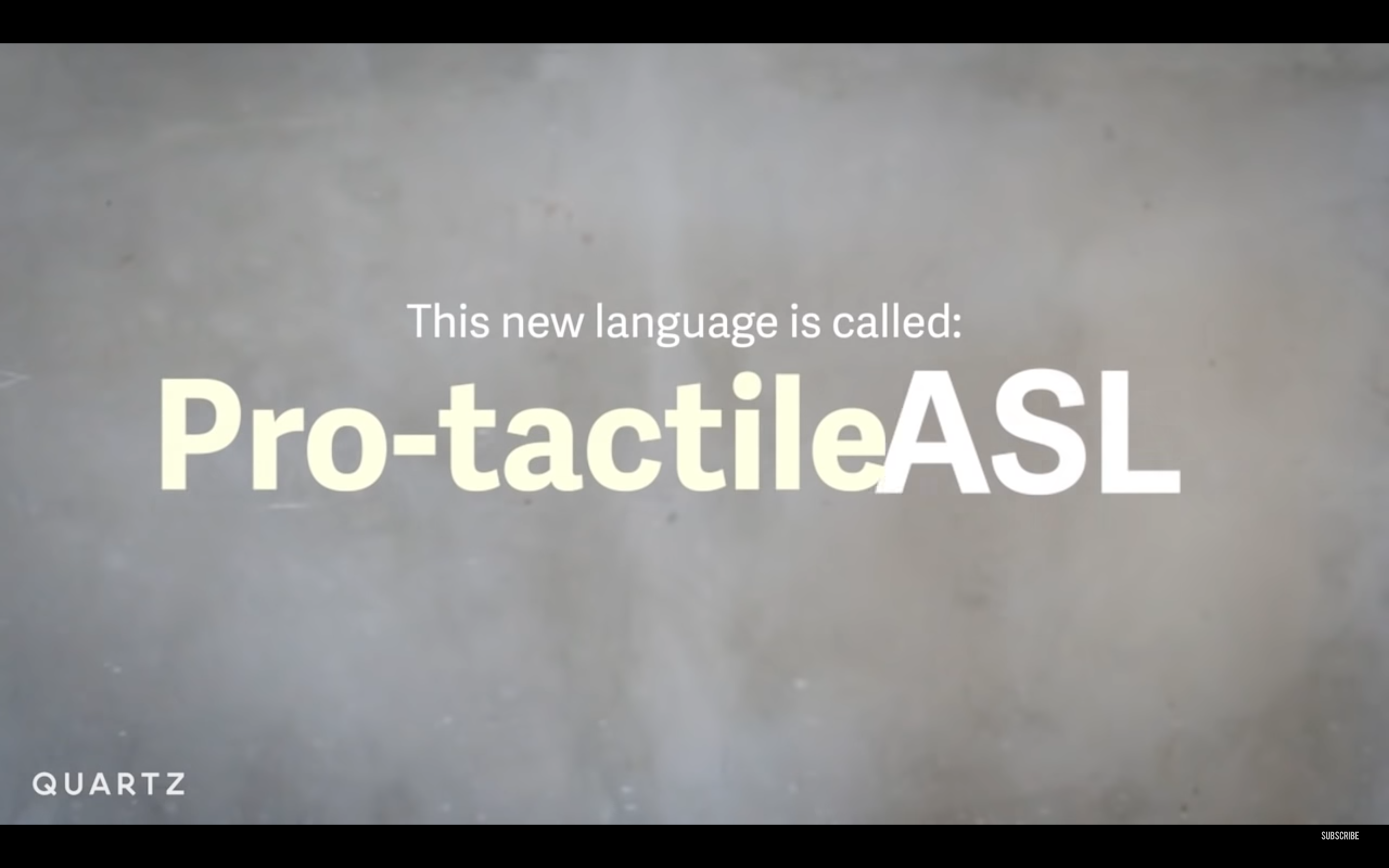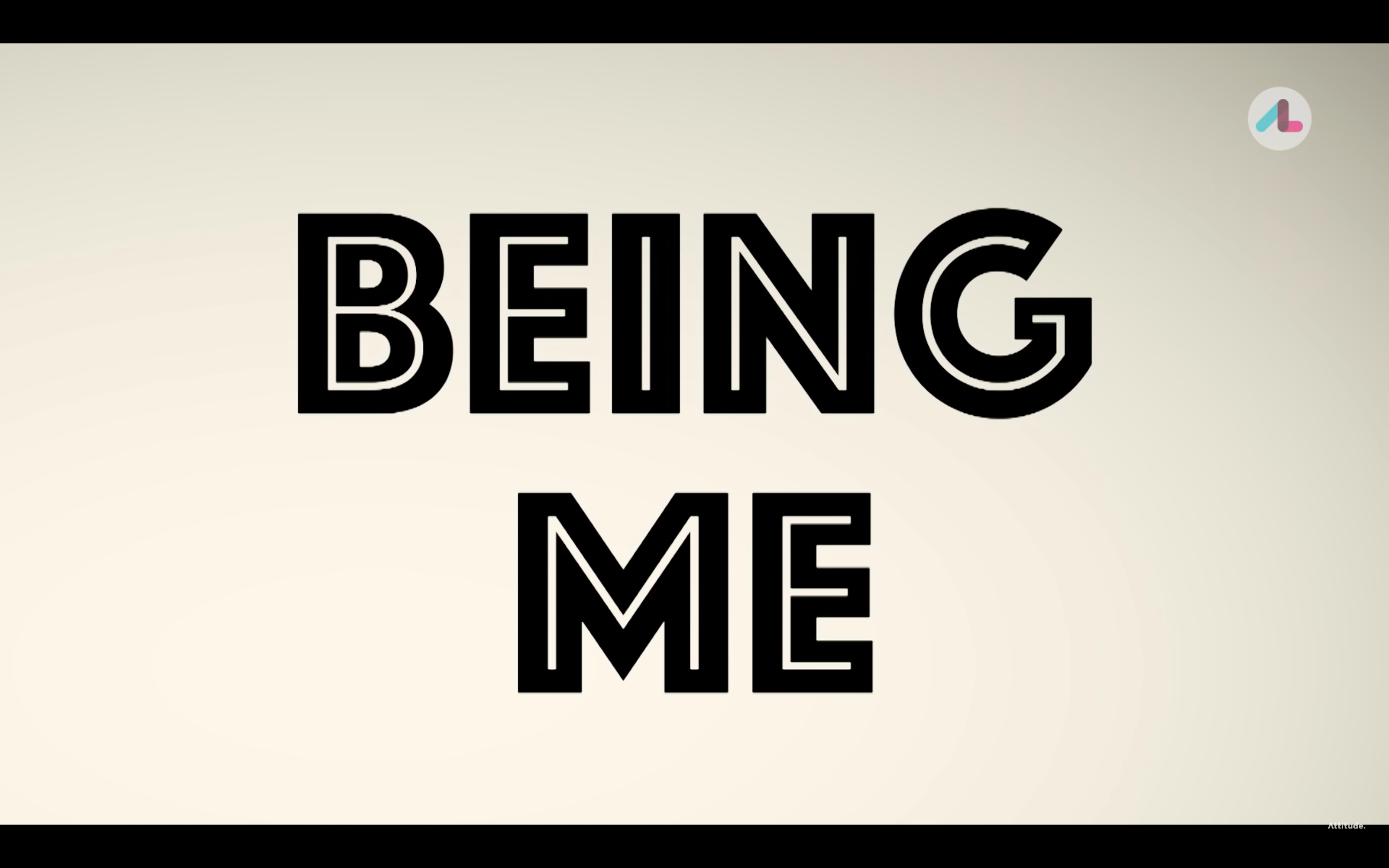
What is Interpreting?
Interpreting is the ability to facilitate between two languages, extracting the main message from the Source Language and producing an equivalent meaning in the Target Language. Interpreters can be found in many countries and many different languages. People who are d/Deaf or Hard-of-Hearing and use sign language use interpreters to facilitate between their preferred sign language and spoken language.
In the USA and Canada, d/Deaf and Hard-of-Hearing (DHH) people use American Sign Language (ASL). American Sign Language interpreters are used to provide equal communication access in various settings. We will discuss each area in more depth below. One can find interpreters in various places, including but not limited to: healthcare, workplace meetings, courtrooms, K-12 and postsecondary classrooms, churches, etc.
Legal Aspects of Interpreting
If you are a company, business, building, or another service that is widely available to the public, you may be required to provide sign language interpreters for your deaf and hard-of-hearing consumers.
There have been instances where companies who have been required to provide interpreters refuse, insisting that the deaf/hard-of-hearing (DHH) person bring a family member or friend to interpret or potentially billing the DHH person for the interpreter. This is illegal and provides the deaf person with legal grounds to sue and win.
Qualified interpreters have five requirements- they must be able to interpret effectively, accurately, and impartially, both receptively and expressively, using any necessary specialized vocabulary (Office of Civil Rights, 2015). To learn more about interpreting services and your requirements under the law, please read about the ADA and the Rehab Act of 1973.

Areas of Interpreting
There are many different areas interpreters can work, and there are many types of interpreters. Some interpreters work freelance, meaning they charge their own pay rate and contract with whomever they want- interpreter agencies or companies directly needing interpreter services. Depending on what area they are located in, interpreters’ pay rates can greatly vary. Other interpreters work strictly for agencies. They don’t freelance and may only work for one agency. Still, other interpreters work as staff for a particular business. They may be employed by a school district, a hospital, or a workplace. Pay rates differ for various positions, depending on skill, certification, or level of education.
Interpreters can be found in many places. Some examples of where interpreters work are college or university graduation ceremonies, weddings, funerals, dentist appointments, doctor visits, church services, educational environments, and courtrooms. Below, I will highlight several specialized fields where interpreters work and list resources for aspiring or working interpreters. Remember, wherever a d/Deaf person can go, an interpreter can go.
Specialization for Interpreters
Listed below are some of the many specialized areas interpreters can work in. Click on each picture or title to learn more about each area.
- Legal
- Religion
- Healthcare
- Education
- DeafBlind
- Other
Aspects of Legal Interpreting
Many people think legal interpreting only consists of the courtroom. That is incorrect. Legal interpreting consists of paralegal, law enforcement, and courtroom. It also includes forms signed in healthcare or educational settings that are legally binding.
Interpreters in legal settings should have a legal or court certification. It is required that court interpreters have this specialized certification, but this is not always the case for law enforcement or paralegal settings. The most effective interpretations usually are a result of a team of interpreters- a hearing legal/court certified interpreter and a Certified Deaf Interpreter (CDI), especially when the d/Deaf person has a limited understanding of the legal system.
Below, you will find a brief description of each setting, and resources for interpreters to utilize.
Law Enforcement
Interpreters are required for interviews with law enforcement after arrests, making phone calls, and any other activity where they will be held responsible for the information given to them.
Paralegal
Paralegal settings are anywhere where legal knowledge is required. For example, a meeting with an attorney-client, a court-ordered competency evaluation, or a divorce mediation.
Courtroom
Often considered the most volatile of all interpreting environments, this is the specialization in which we find the least amount of qualified interpreters. Courtroom interpreting consists of civil law (disputes, divorce, estate, etc.) and criminal law.
Resources
Articles
- Bancroft, M. A., Bendana, L., Bruggeman, J., Feuerle, L. (2013). Interpreting in the gray zone: Where community and legal interpreting intersect. The International Journal for Translation & Interpreting Research. 5(1), 94-113.
- Braun, S. (2018). Video-mediated interpreting in legal settings in England: Interpreters' perceptions in their sociopolitical context. Translation and Interpretation Studies. 13(3), 393-420.
- Brunson, J. L. (2007). Your case will now be heard: Sign language interpreters as problematic accommodations in legal interactions. Journal of Deaf Studies and Deaf Education. 13(1), 77-91.
- Mathers, C. M. (2018). Interpreting in legal contexts. In L. Roberson & S. Shaw (Eds.) Signed language interpreting in the 21st century: Foundations and practice (pp. 115-130). Gallaudet University Press.
- Napier, J. & Banna, K. (2018). Walking a fine line - the legal system and sign language interpreters: Roles and responsibilities. Journal of Applied Linguistics and Professional Practice. 13(1-3), 233-253.
- Napier, J. & Spencer, D. (2017). Jury instructions: Comparing hearing and deaf jurors' comprehension via direct or mediated communication. The International Journal of Speech, Language and the Law. 24(1), 1-29.
- Roberson, L., Russell, D., & Shaw. R. (2011). American Sign Language/English interpreting in legal settings: Current practices in North America. Journal of Interpretation. 21(1), Article 6.
- Shaffer, B. (2018). Tracing the origins of legal terminology in ASL: Perspectives for ASL/English interpreters. Journal of Interpretation. 26(1), Article 4.
- Shaffer, S. A. & Evans, J. R. (2018). Interpreters in law enforcement contexts: Practices and experiences according to investigators. Applied Cognitive Psychology. 32(1), 150-162.
RID Standard Practice Paper - Legal Interpreting
Aspects of Religious Interpreting
Interpreters can work in religious settings, interpreting for various religions (Christianity, Islam, Judaism, etc.) and denominations. They may interpret congregational songs/hymns, sermons, weddings, or funerals with a religious context, conferences, or concerts.
Interpreting in religious settings requires knowledge of the specific religion or denomination, cultural knowledge/understanding of the original religion’s culture, the ability to interpret messages that rely heavily on imagery or idiomatic expressions, and sometimes a willingness to perform services pro-bono.
Resources
Help Me Develop a Workshop!
Aspects of Healthcare Interpreting
Healthcare interpreting is a broad category that encompasses mental health and medical interpreting. Mental health interpreting can include counseling/therapy, psychiatric evaluations, and psychiatric hospital stays, while medical interpreting can involve anything from dental to ER.
Mental Health Interpreting
Underneath the mental health umbrella is language deprivation. I will include some resources here about language deprivation, as a plethora of research suggests language deprivation directly impacts cognitive and academic development and, therefore, users' mental health.
Resources
Articles
- Black, P., & Glickman, N. (2006, Summer). Demographics, psychiatric diagnoses, and other characteristics of North American deaf and hard-of-hearing inpatients. Journal of Deaf Studies and Deaf Education, 11(3), 303-321.
- Black, P., & Glickman, N. (2006). Language deprivation in the deaf inpatient population. JADARA, 39(1), 1-28.
- Cheng, Q., Roth, A., Halgren, E., & Mayberry, R. I. (2019). Effects of early language deprivation on brain connectivity: Language pathways in Deaf native and late first-language learners of American Sign Language. Frontiers in Human Neuroscience, 13, Article 320.
- Crump, C. J., & Hamerdinger, S. H. (2017). Understanding etiology of hearing loss as a contributor to language dysfluency and its impact on assessment and treatment of people who are deaf in mental health settings. Community Mental Health Journal, 53, 922-928.
- Hall, M. L., Eigsti, I. M., Bortfeld, H., & Lillo-Martin, D. (2017). Auditory deprivation does not impair executive function, but language deprivation might: Evidence from a parent-report measure in deaf native signing children. Journal of Deaf Studies and Deaf Education, 22(1), 9-21.
- Hall, M. L., Hall, W. C., & Caselli, N. K. (2019). Deaf children need language, not (just) speech. First Language, 39(4), 367-395.
- Hall, W. C. (2017). What you don't know can hurt you: The risk of language deprivation by impairing sign language development in deaf children. Maternal and Child Health Journal, 21, 964-965.
- Ryan, C., & Johnson, P. (2019). Review: Understanding language deprivation and its role in deaf mental health [Review of the book Language deprivaton and deaf mental health by N. Glickman, & W. C. Hall, Eds.]. American Annals of the Deaf, 164(4), 519-524.
- Skotara, N., Salden, U., Kugow, M., Hanel-Faulhaber, B., & Roder, B. (2012). The influence of language deprivation in early childhood on L2 processing: An ERP comparison of deaf native signers and deaf signers with a delayed language acquisition. BMC Neuroscience, 13(44).
RID Standard Practice Paper- Interpreting in Mental Health Settings
Medical Interpreting
As stated above, medical interpreting involves a lot of areas. It can include deaf patients or deaf healthcare professionals in settings ranging from specializations such as dental/orthodontic, optometry, and ophthalmology, podiatry, OBGYN/women’s health, or can include typical healthcare such as routine checkups, surgery, hospital, and Emergency Room or ICU care, or include infant/child wellness.
Resources
Books
Articles
- Cantrell, T. S., & Owens, T. (2007). Empowering deaf consumers through the use of deaf and hearing interpreter teams. JADARA, 40(3), 35-41
- Nicodemus, B. S., Whynot, L., & Kushalnagar, P. (2020). Insights from U.S. deaf patients: Interpreters’ presence and receptive skills matter in patient-centered communication care. Journal of Interpretation, 28(2), 1-22
- Pochhacker, F., & Schlesinger, M. (2005). Introduction: Discourse-based research on healthcare interpreting. Interpreting, 7(2), 157-165.
- Schapira, L., Vargas, E., Hidalgo, R., Brier, M., Sanchez, L., Hobrecker, H., Lynch, T., Chabner, B. (2008). Lost in translation: Integrating medical interpreters into the multidisciplinary team. The Oncologist, 13, 586-592
RID Standard Practice Paper - Interpreting in Health Care Settings
Educational Interpreting
Many people think educational interpreting only exists in K-12 settings, but educational interpreting can include postsecondary as well. It can also be represented as workshops that Deaf educators must take or host for professional development.
Resources
Articles
- RID Standard Practice Paper- K-12 Interpreting
- Skill Levels of Educational Interpreters Working in Public Schools
- Educational Interpreters: Access and Outcomes
- Interpreting Community Effects on Youth Educational Attainment
- Look Who's Being Left Behind: Educational Interpreters and Access to Education for Deaf and Hard-of-Hearing Students
- Access to Postsecondary Education through Sign Language Interpreting
- American Sign Language In The Classroom (Workshop Presented to Texas ESC Region XV)
DeafBlind Interpreting
Just as Deafness can be on a spectrum of mild to profound loss, so can DeafBlindness. One can have mild hearing and profound vision loss, and vice versa, or a variation of either. To interpret for a DeafBlind person requires knowledge of ProTactile, a new variation of ASL that has emerged in recent years. One should also be aware of basic guiding principles for DeafBlind individuals, as this skill may be required during the time you are employed as their interpreter.
Resources
Books
Articles
- Arndt, K., & Parker, A. (2016). Perceptions of social networks by adults who are deafblind. American Annals of the Deaf, 161(3), 369-383
- Bieling, T., Martins, T., Joost, G. (2016). Internet of everyone- tools for empowerment. Graduate Journal of Social Science, 12(2), 96-107
- Bradbury, J. M., Clark, J. L., Grossman, R., Herbers, J., Magliocchino, V., Norman, J., Romilus, Y., Sirvage, R. T., van der Mark, L. (2019). ProTactile Shakespeare: Inclusive theater by/for the DeafBlind. Shakespeare Studies, 47, 81-99
- Hartshorne, T. S., and Schmittel, M. C. (2016). Social-emotional development in children and youth who are deafblind. American Annals of the Deaf, 161(4), 444-453
- Hersh, M. (2013). Deafblind people, communication, independence, and isolation. Journal of Deaf Studies and Deaf Education, 18(4), 446-463
- Hersh, M. A. (2016). Improving deafblind travelers' experiences: An international survey. Journal of Travel Research, 55(3), 380-394
- Lieberman, L. J., & Linsenbigler, K. (2017). Teaching recreational activities to children and youth with visual impairment or deafblindness. Palaestra, 31(1), 40-46
- Lieberman, L., & Stuart, M. (2002). Self-determined recreational and leisure choices of individuals with deaf-blindness. Journal of Visual Impairment & Blindness, 96(10), 724-735
- Willoughby, L., Manns, H., Iwasaki, S., Bartlett, M. (2019). Are you trying to be funny? Communicating humour in deafblind conversations. Discourse Studies, 21(5), 584-602
- Wolsey, J. A. (2017). Perspectives and experiences of deafblind college students. The Qualitative Report, 22(8), 2066-2089
DeafBlind Videos
Interpreting in Other Contexts
In addition to the five specialized areas highlighted on the other pages, there are many settings where interpreters can work. I will provide aspiring or working interpreters with resources to expand their current knowledge base. Please note that the list of areas I give where interpreters can work is not exhaustive.
Workplace Interpreting
Designated Interpreters
Video Relay Service (VRS) Interpreters
Video Remote Interpreting (VRI)/Over Video Interpreting (OVI)
Oral Transliteration
Performing Arts
Certified Deaf Interpreter
Commencement Conference Interpreting
Resources
- RID Standard Practice Paper - Multiple Roles in Interpreting
- RID Standard Practice Paper - Performing Arts
- RID Standard Practice Paper - Oral Transliterating
- RID Standard Practice Paper - Team Interpreting
- RID Standard Practice Paper - Coordinating Conference Interpreters
- RID Standard Practice Paper - Video Relay Service (VRS)
- RID Standard Practice Paper - Certified Deaf Interpreters (CDI)
- RID Standard Practice Paper - Video Remote Interpreting (VRI)
- Designated Interpreters: An Examination of Roles, Relationships, and Responsibilities
- Deaf Professionals and Designated Interpreters: A New Paradigm





